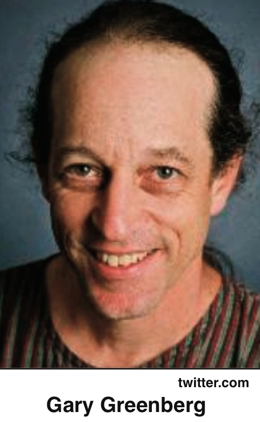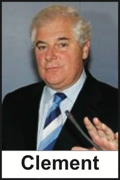Rascals case in brief
In the beginning, in 1989, more than 90 children at the Little Rascals Day Care Center in Edenton, North Carolina, accused a total of 20 adults with 429 instances of sexual abuse over a three-year period. It may have all begun with one parent’s complaint about punishment given her child.
Among the alleged perpetrators: the sheriff and mayor. But prosecutors would charge only Robin Byrum, Darlene Harris, Elizabeth “Betsy” Kelly, Robert “Bob” Kelly, Willard Scott Privott, Shelley Stone and Dawn Wilson – the Edenton 7.
Along with sodomy and beatings, allegations included a baby killed with a handgun, a child being hung upside down from a tree and being set on fire and countless other fantastic incidents involving spaceships, hot air balloons, pirate ships and trained sharks.
By the time prosecutors dropped the last charges in 1997, Little Rascals had become North Carolina’s longest and most costly criminal trial. Prosecutors kept defendants jailed in hopes at least one would turn against their supposed co-conspirators. Remarkably, none did. Another shameful record: Five defendants had to wait longer to face their accusers in court than anyone else in North Carolina history.
Between 1991 and 1997, Ofra Bikel produced three extraordinary episodes on the Little Rascals case for the PBS series “Frontline.” Although “Innocence Lost” did not deter prosecutors, it exposed their tactics and fostered nationwide skepticism and dismay.
With each passing year, the absurdity of the Little Rascals charges has become more obvious. But no admission of error has ever come from prosecutors, police, interviewers or parents. This site is devoted to the issues raised by this case.
On Facebook
Click for earlier Facebook posts archived on this site
Click to go to
Today’s random selection from the Little Rascals Day Care archives….
Click for earlier Facebook posts archived on this site
Click to go to
Today’s random selection from the Little Rascals Day Care archives….
Richard Kluft, ‘advocate of moderation’?
 Feb. 28, 2014
Feb. 28, 2014
As noted by Gary Greenberg, Richard Noll’s disappeared history of psychiatry and satanic ritual abuse “singles out two psychiatrists – Bennett Braun and Richard Kluft – who were instrumental in giving legitimacy to the SRA accounts. They helped change the DSM to make Multiple Personality Disorder (thought to be caused by the abuse) seem more common, they started the International Society for the Study of Multiple Personality and Dissociation, and they founded a journal called Dissociation….”
If the SRA era was psychiatry’s Wild West, then Braun and Kluft were… who? Butch and Sundance? Or Frank and Jesse?
In “Rewriting the Soul: Multiple Personality and the Sciences of Memory” (1995) philosopher Ian Hacking pointed out an editorial in Dissociation in which Kluft “pleaded for moderation, but… acknowledged that powerful emotions were at work. He also raised the stakes by printing a comparison that I find rather odious. He noted that one party refers to Nazis and the Holocaust, asking, ‘Should he or she be silent, emulating the “good Germans” who did not speak out about the atrocities in their midst, and by his or her silence become a facilitator?’”
Despite such overheated comparisons, and his ludicrous estimates of an epidemic of “multiples,” Kluft at least claimed “moderation” – not so Braun, whose excesses in patient treatment led to suspension of his Illinois medical license, closure of his hospital MPD unit and at least four out-of-court settlements, one for $10.6 million.
Today he practices in obscurity, while Kluft concentrates on stifling publication of incriminating journal articles.
French prosecutors erred – and admitted it!
 April 4, 2012
April 4, 2012
“An appeals court Thursday overturned the conviction of six people accused of participating in a pedophilia ring in northern France five years ago, unraveling one of the most mismanaged cases in French judicial history and leaving the nation asking how the court system could have gone so awry.
“ ‘I apologize to the acquitted and their families,’ Justice Minister Pascal Clement said at a news conference after the verdict was announced in Paris.
“He ordered a triple investigation of the police, judiciary and social services involved in the case…. ‘I want the French people to know that I will get to the bottom of this,’ he said.
“Paris’s chief prosecutor, Yves Bot, had personally asked the appeal court to acquit the six, calling the case a ‘true catastrophe’ and demanding an investigation into who was responsible for such a gross miscarriage of justice. ‘We must do what is necessary to make sure this doesn’t happen again,’ Bot said.
“But others were heartened by the appeal, saying that it showed that the courts were capable of self-criticism and self-correction.
“ ‘That’s indispensable in a democracy,’ said Dominique Wolton, a sociologist at France’s National Council for Scientific Research.
“The case began in 2000 in the town of Outreau after a number of children told a teacher that they had been abused.
“It was marred by deep doubts from the beginning, said Yves Jannier, France’s attorney general.
“He noted that the investigative report by the police in July 2002 found ‘more doubts than certainties’ in the accusations, but said, ‘No one had enough critical sense to stop the machine.’ ”
– From the International Herald Tribune, Dec. 2, 2005
Thanks to lawyer-neighbor Lou Lesesne for steering me to this account of the Outreau Affair.
Although the case differs in numerous significant ways from such U.S. ritual-abuse prosecutions as Little Rascals and McMartin, I was most struck by the readiness of French officials to acknowledge and apologize for a justice system gone crazy.
Soon after, president Jacques Chirac wrote letters to 13 acquitted defendants and to the widow of a defendant who committed suicide in prison awaiting trial: “Justice is the soul of the republic. We have the imperative duty to draw all the lessons from the immense sufferings endured by all the accused whose innocence has now been established.”
How to explain the French state’s humane response to its costly misdeeds, while our own prosecutors, attorneys general, governors, et al., keep silent?
Why aren’t they too “capable of self-criticism and self-correction”?
Why don’t they too recognize “the immense sufferings endured by all the accused”?
Children ‘defend veracity of implanted memories’
Sept. 27, 2013
“The children are the big victims (in unfounded sex abuse cases) and are sacrificed…. Can you imagine being a child and being interrogated, being sent to the gynecologist, seeing your mother cry, seeing your father getting into fights, or a person you really like being sent to prison? You actually end up believing that this happened to you, that’s what we called ‘added memory.’
“Those children grow up with the same memories as those who actually experienced child abuse. I found it disturbing and I felt that it had to be told.”
– From an interview with Thomas Vinterberg, director of “The Hunt,” at filmophelia.com (July 11, 2013)
Vinterberg’s sympathy for the children in such cases is well placed – but do they in fact “grow up with the same memories as those who actually experienced child abuse”?
Although reliable follow-up is scarce, Debra Poole, professor of psychology at Central Michigan University, had this to say about the unfounded claims of child witnesses in the Fells Acres (Amirault) case:
“It has nothing to do with lying and everything to do with the implanting of false memories…. Studies have shown that children will vehemently defend the veracity of implanted memories. They recall reporting them, and those reports produce mental images of the events that these individuals cannot distinguish from their real experiences. But the kids are not responsible for that. The interviews are.”
The Little Rascals child witness I talked with insists she continues to “remember vividly what happened.”
Prosecutors Book Club, please take note
April 19, 2014
“Is it possible to so modify child forensic interviewing that the sorts of errors described by Ceci and Bruck are minimized?…
“The primary problem is that most prosecutors and most so-called mental health professionals do not stay current….
“How likely, for instance, is it that a copy of ‘Jeopardy in the Courtroom’ will be found on your favorite prosecutor’s desk?”
– From “A Review of a Review of ‘Jeopardy in the Courtroom’ by Stephen J. Ceci and Maggie Bruck” at falseallegations.com











0 CommentsComment on Facebook